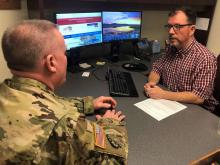Digital Inclusion Leaders Brace for Impact
Digital inclusion organizations are reeling after the Trump administration announced the Digital Equity Act grant programs, embedded in the bipartisan infrastructure law, was being cancelled months after federal grants had already been reviewed and awarded.
On Friday evening, President Trump announced via a Truth Social post that he was cancelling the Digital Equity Act, claiming it to be “unconstitutional” and “racist,” and, therefore, “ending this immediately.” Yesterday, state broadband offices began receiving letters from NTIA, the federal agency administering the program, to formally announce funding was being terminated.
As news began to trickle out, many of those working on these issues across the nation had more questions than answers as they scrambled to process a mix of confusion and frustration, especially mindful of the fact that the Digital Equity Act barely touches on the subject of race. Although Black, Brown, and Indigenous communities have been disproportionately left on the wrong side of the digital divide, only one of the of eight “covered populations” identified by Congress in the law even mentions race.



